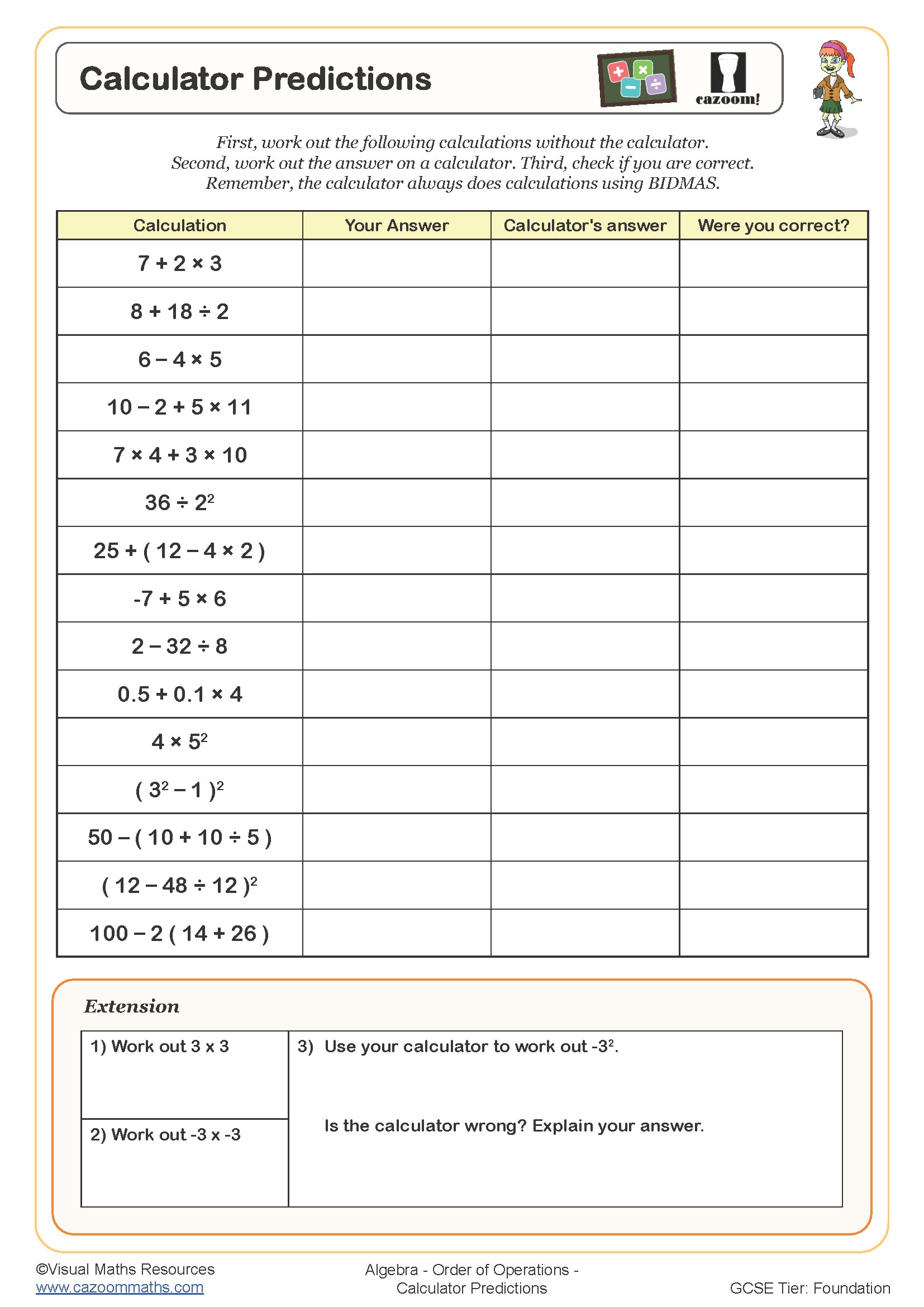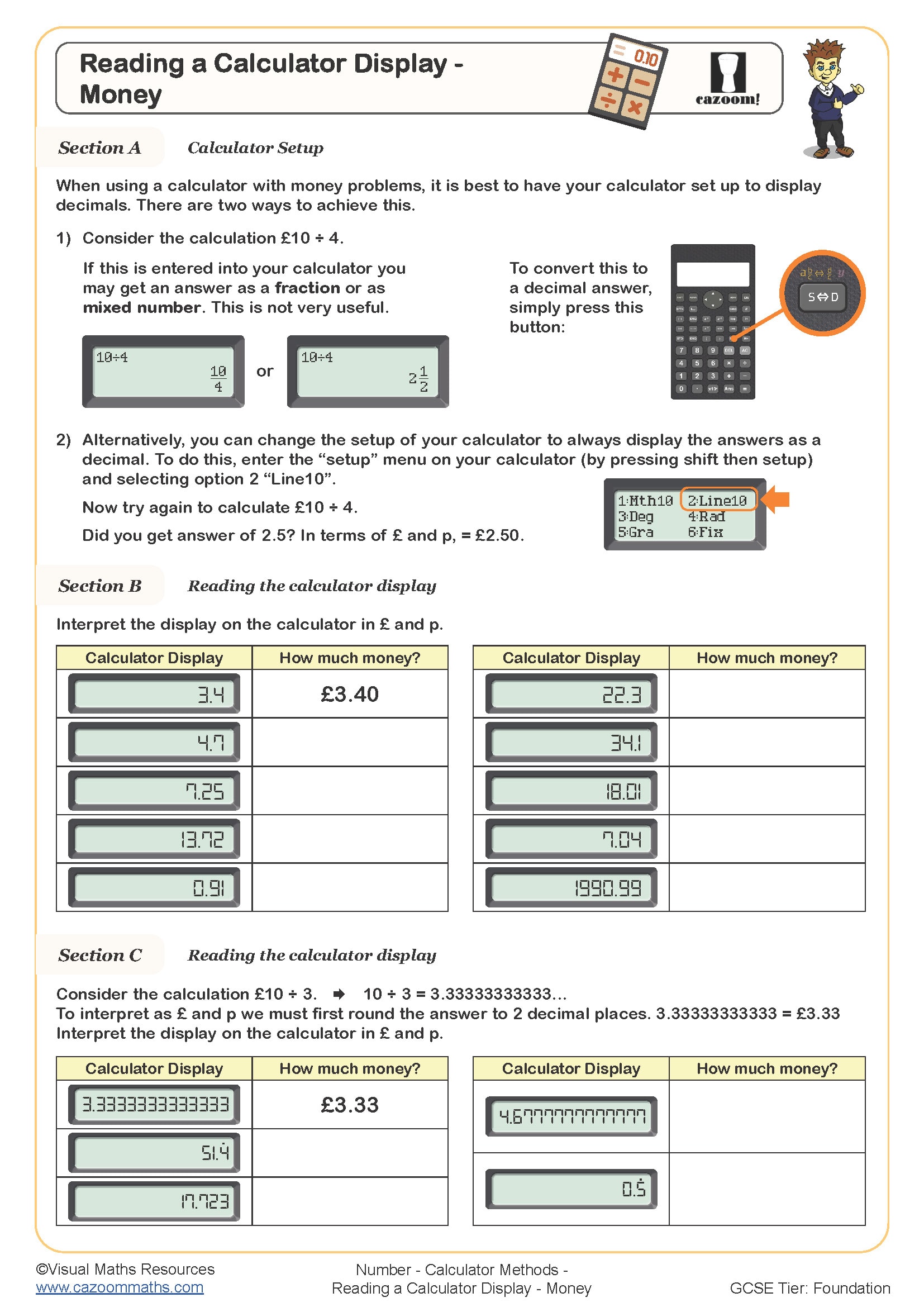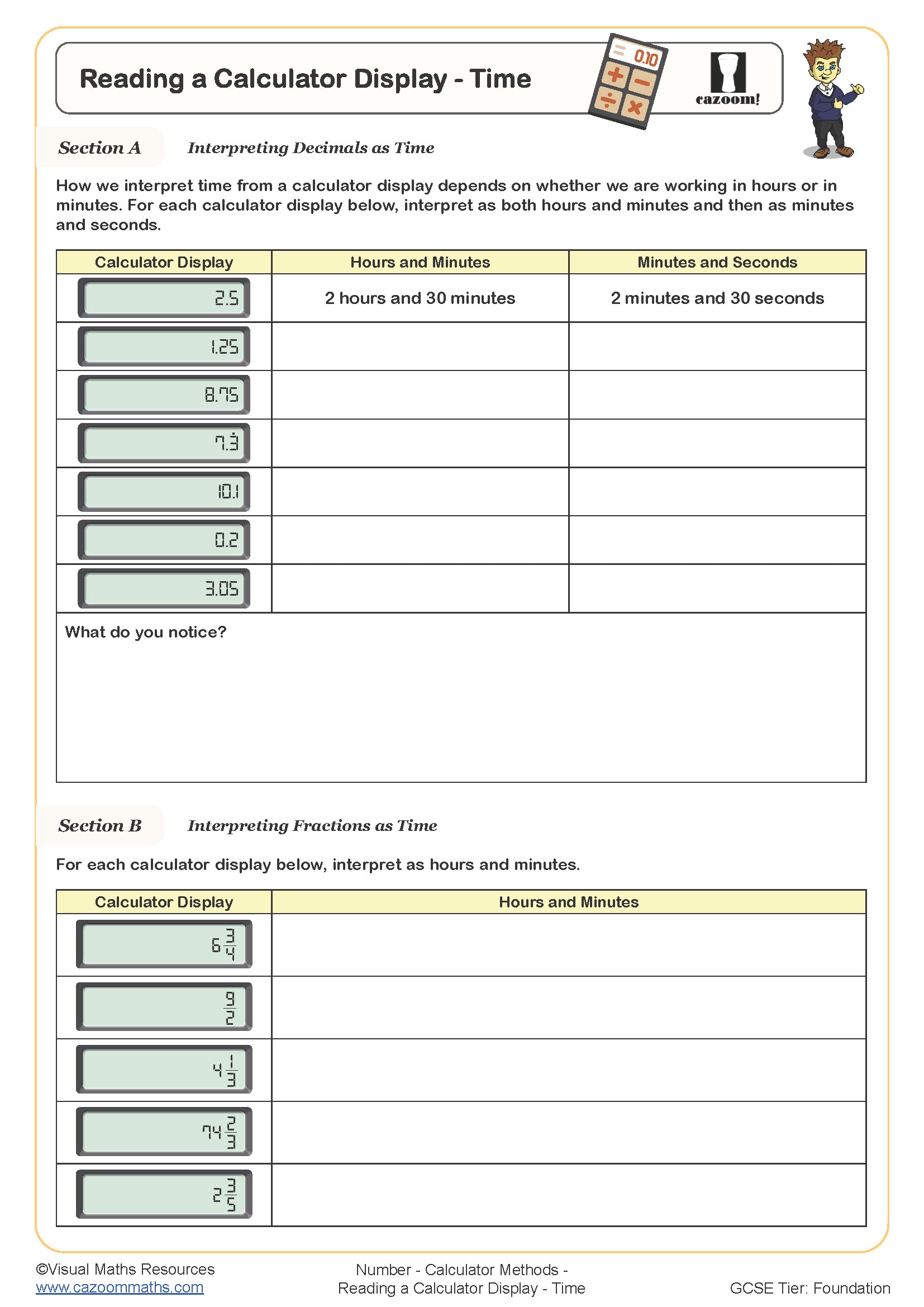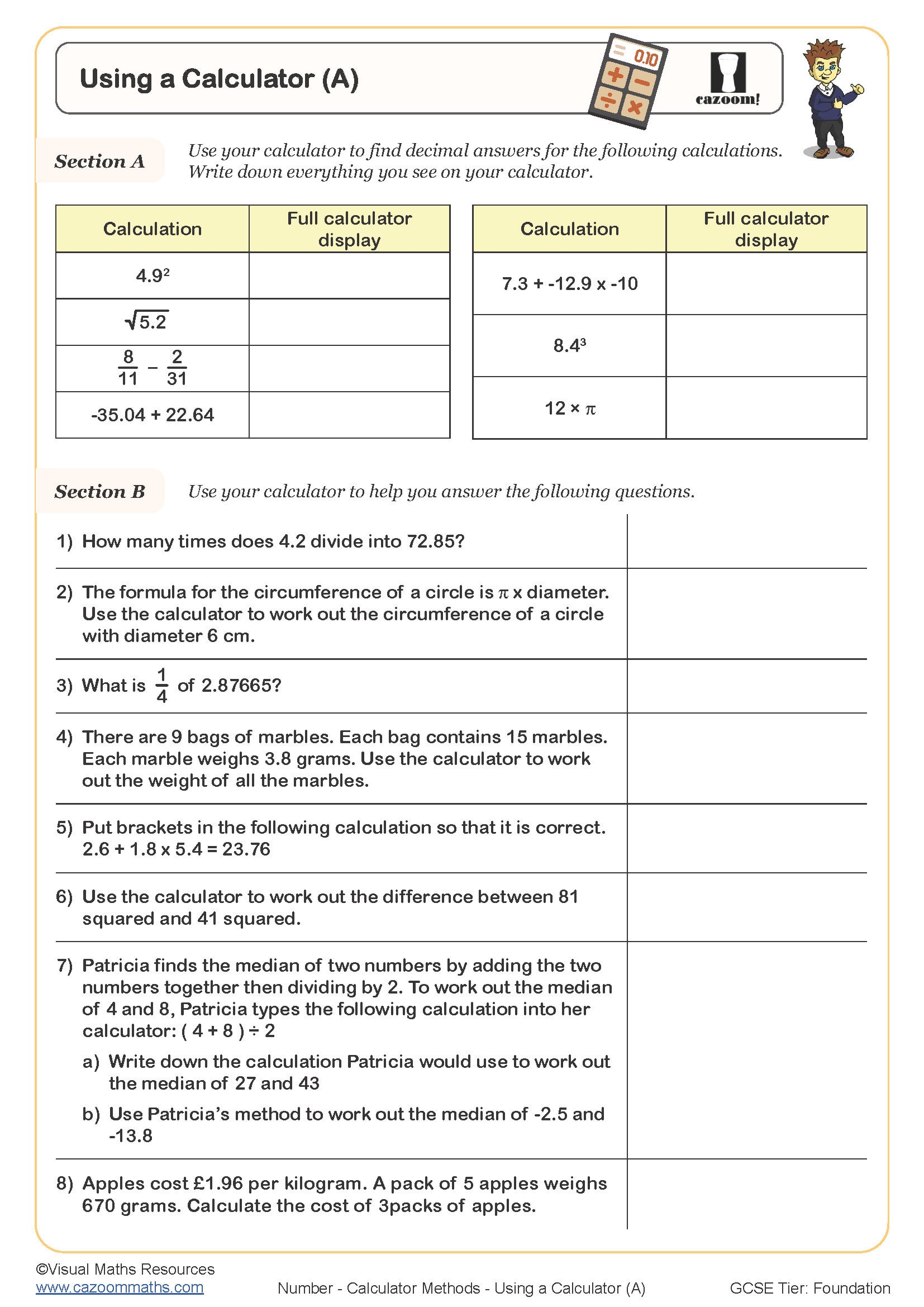Year 7 Calculator Methods Worksheets
All worksheets are created by the team of experienced teachers at Cazoom Maths.
Year 7 Calculator Practice Worksheets PDF with Detailed Methods
Our Cazoom Maths expert team has observed that advanced number maths skills can really be overwhelming for your young students who are transitioning from KS2 to KS3. To make this transition process smooth and easy, we have created our worksheets in ready-to-use, printable PDF format. Each of these worksheets includes separate answer sheets to facilitate an easy checking process. Download our maths activities right now to provide the extra help your young learners need!
Calculator Skills & Methods Covered in These Year 7 Maths Worksheets
Year 7 is when maths problems get much trickier, and students who can't use calculators properly end up making silly mistakes that hurt their confidence. We've found that teaching proper calculator methods early means students can focus on understanding the maths instead of getting stuck on basic calculations.
With our maths resources, your secondary school students start with fundamental operations and progress to multi-step calculations. The memory functions and order of operations sections are particularly popular with our students. They will be able to practice percentage calculations, decimal operations, and scientific notation basics. We have also included calculator questions and answers that mirror real exam scenarios.
Calculator Practice Questions That Build Year 7 Confidence
Cazoom Maths calculator practice questions prepare students for GCSE-style problems they'll encounter later. Regular practice builds both speed and accuracy.
• Develops confidence with complex calculations
• Improves accuracy in multi-step problems
• Builds familiarity with calculator functions
• Prepares students for exam conditions
• Reduces calculation errors in other subjects
Real Maths Applications Where Year 7 Calculator Skills Matter
Calculator skills pop up everywhere! In science lessons, they're calculating densities and reaction rates. Geography students use calculators for population statistics and climate data. Even in PE, they're working out in training zones and performance improvements. We love seeing that "aha moment" when students realise how useful these skills really are.
• Science experiments and data analysis
• Geography, population and climate calculations
• Design Technology measurements and ratios
• Business Studies profit and loss calculations
• Art and Design proportion and scaling work
• Personal finance and budgeting skills



